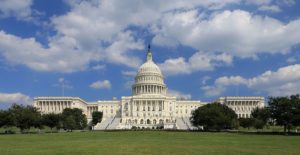 (Washington, DC) – Last Thursday, March 7, Andy Kricun, Executive Director of the Camden County Municipal Utilities Authority (CCMUA), was invited to testify during a public hearing held by the House Transportation & Infrastructure Committee’s Subcommittee on Water Resources and Environment.
(Washington, DC) – Last Thursday, March 7, Andy Kricun, Executive Director of the Camden County Municipal Utilities Authority (CCMUA), was invited to testify during a public hearing held by the House Transportation & Infrastructure Committee’s Subcommittee on Water Resources and Environment.
Kricun, who is also a board member of the National Association of Clean Water Agencies (NACWA), proposed solutions for closing “the infrastructure gap” and the future investment needed to maintain clean water systems in comparison to current investments. Kricun also spoke about solving “the affordability challenge” and the burden of rising infrastructure maintenance costs on low-income ratepayers.
“Closing the infrastructure gap will be very costly and will impose an economic burden on all customers, which will be felt especially by our most economically distressed customers,” Kricun testified. “Every American citizen, rural and urban, regardless of their zip code, deserves safe drinking water and clean rivers and streams at affordable rates.”
Kricun’s testimony highlighted how the Clean Water State Revolving Fund (CWSRF) has helped CCMUA make transformative investments in its facilities, while keeping rate increases low. He made the case for more robust funding for the CWSRF, the core federal program for water which provides low-interest loans for clean water utilities; the creation of “affordability/rate assistance programs” to help defray water infrastructure costs to ratepayers; and partnerships—including peer-to-peer partnerships among public sector utilities, as well as those between public sector and private sector organizations.
“There is an opportunity for a ‘win-win’ in dealing with the infrastructure gap as the construction of new water infrastructure will also create jobs at a time when they are badly needed in our economy,” Kricun said. “There is a tremendous opportunity to better protect public health and the environment, and create jobs for our economy, without causing economic harm to our most vulnerable communities.”
The hearing, entitled “The Clean Water State Revolving Fund: How Federal Infrastructure Investment Can Help Communities Modernize Water Infrastructure and Address Affordability Challenges” came two days after the bipartisan introduction of the Water Quality Protection and Jobs Creation Act of 2019 in the House – a bill that would significantly boost funding for CWSRF and is strongly supported by NACWA and many other water sector organizations.
